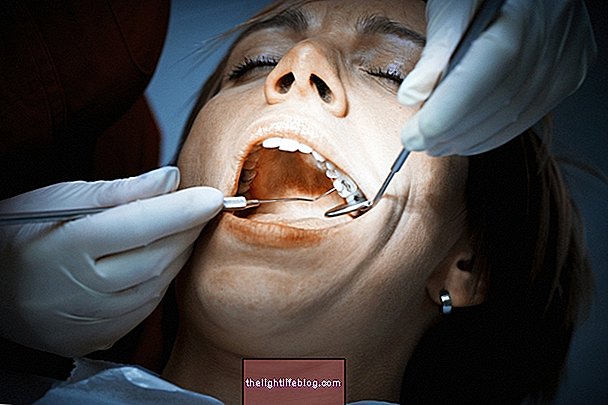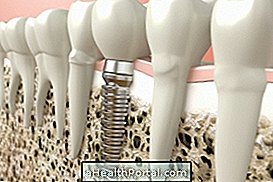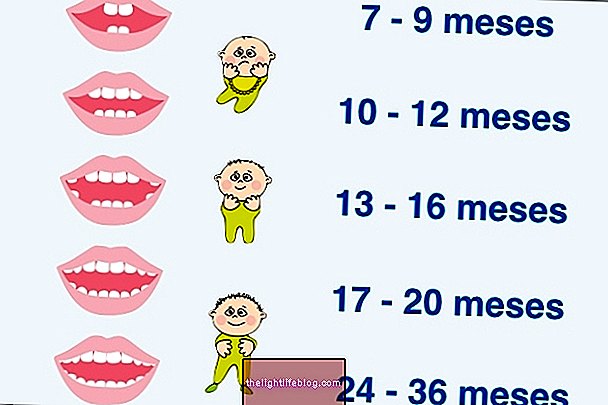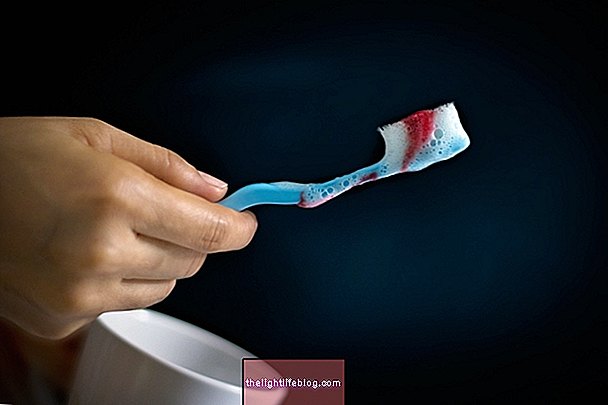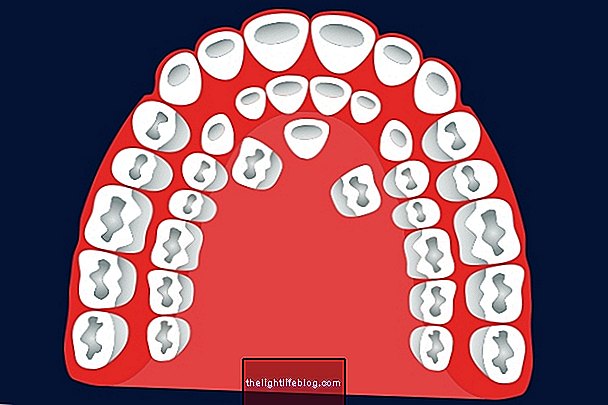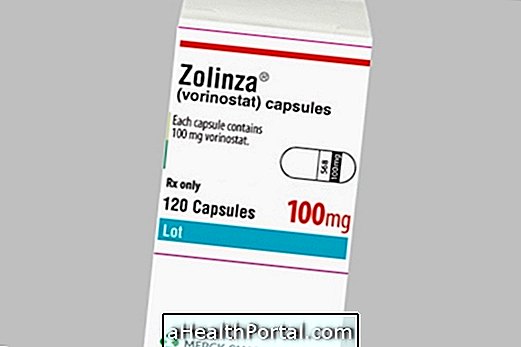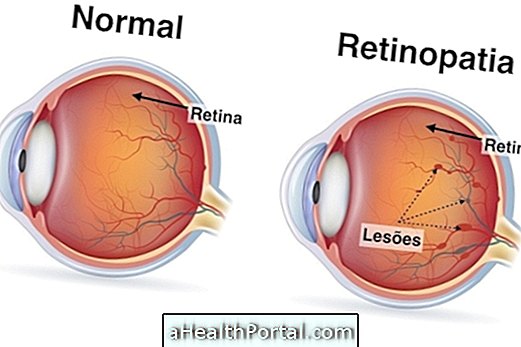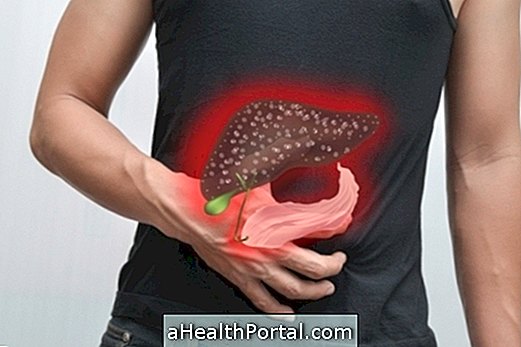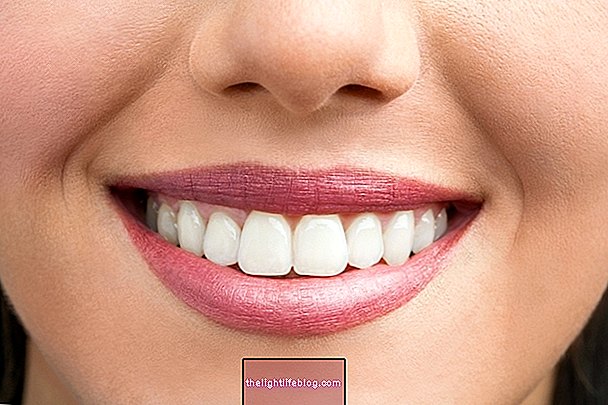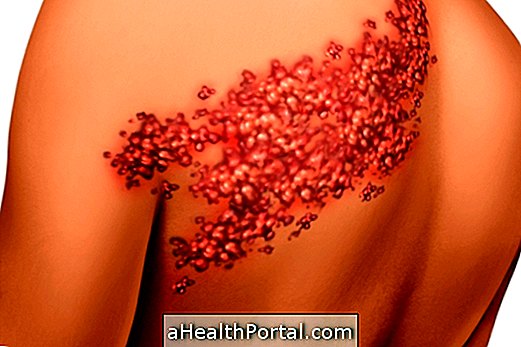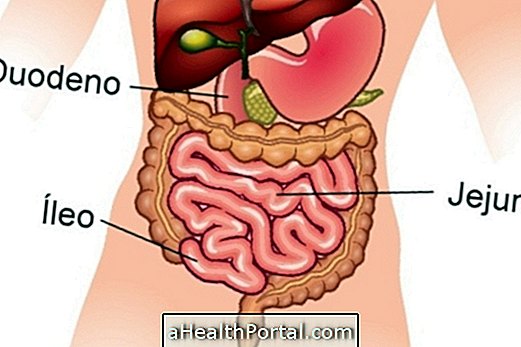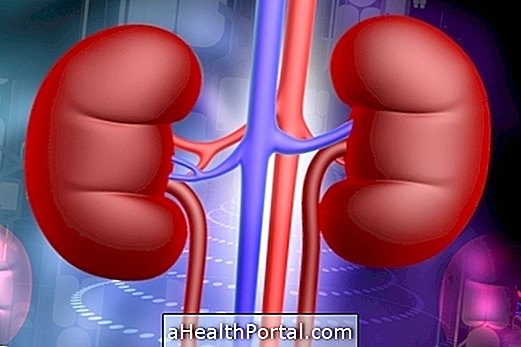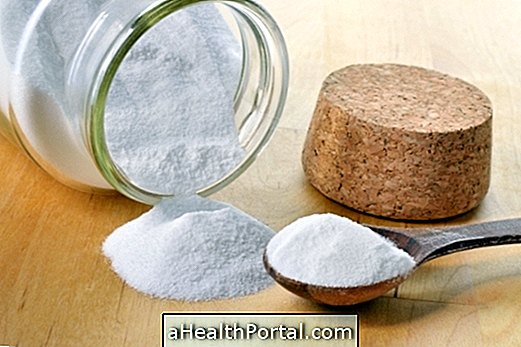Bruxism is a situation characterized by the unconscious act of clenching or gritting your teeth constantly, especially at night and, for this reason, it is also known as nocturnal bruxism. As a consequence of this situation, it is possible that the person will have pain in the jaw joints, worn teeth and headache when waking up.
Bruxism can happen due to psychological factors such as stress and anxiety, or be related to genetic and respiratory factors. It is important that the cause of bruxism is identified so that the treatment is more effective, which usually includes the use of a bruxism plate at bedtime to prevent wear of the teeth.

Symptoms of bruxism
The symptoms of bruxism are usually noticed when the person wakes up, because due to the constant clenching or grinding of the teeth, the muscles of the face can be sore. In addition, other symptoms of bruxism are:
- Wear of the surface of the teeth;
- Teeth softening;
- Pain in the jaw joints;
- Headaches upon waking;
- Daytime tiredness, as sleep quality is decreased.
If bruxism is not identified and treated, problems may develop that involve the functioning of the temporomandibular joint, known as TMJ, which is the joint that connects the mandible to the skull. Learn more about ATM.
What can cause
Night bruxism does not always have a definite cause, however, it can happen due to genetic, neurological or respiratory factors, such as snoring and sleep apnea, for example, in addition to also being related to psychological factors, such as stress, anxiety or tension .
Excessive consumption of caffeine, alcohol, smoking or frequent use of drugs can also increase the frequency of bruxism, both during the day and at night. In addition, reflux can also favor bruxism, because lowering the pH of the esophagus increases the activity of the chewing muscle.
How to treat bruxism
Bruxism has no cure and the treatment aims to relieve pain and prevent problems in the teeth, which usually consists of using an acrylic dental protection plate during the night, which prevents friction and wear between the teeth and prevents problems in the temporomandibular joints. In addition, it also helps to reduce pain and muscle tension in the jaw area, and prevents headaches caused by clenching and grinding of teeth.
Another measures that help to relax the muscles of the jaw and to mitigate and reduce episodes of bruxism, are to apply warm water in the region, for 15 minutes, before going to sleep, and to practice relaxation techniques or to receive a massage, which help to reduce stress and anxiety.
In cases of great discomfort or involving problems in the functioning of the temporomandibular joint, the administration of muscle relaxants or benzodiazepines for a short period of time, and in more severe cases, the application of local injection of botulinum toxin may be justified.
Bruxism is also quite common in children, so see how to identify and what to do in case of infantile bruxism.
Was this information helpful?
Yes No
Your opinion is important! Write here how we can improve our text:
Any questions? Click here to be answered.
Email in which you want to receive a reply:
Check the confirmation email we sent you.
Your name:
Reason for visit:
--- Choose your reason --- DiseaseLive betterHelp another personGain knowledge
Are you a health professional?
NoMedicalPharmaceuticalsNurseNutritionistBiomedicalPhysiotherapistBeauticianOther
Bibliography
- Universidade Federal Fluminense - Faculty of Dentistry - TMD & Orofacial Pain Clinic. Pain in the TMJ region: How can I improve this pain?.
